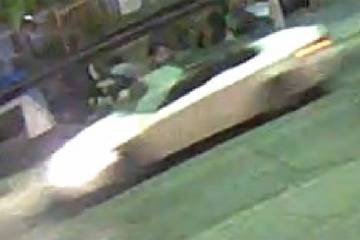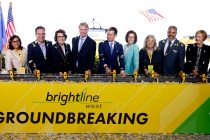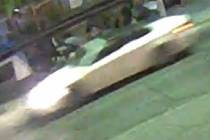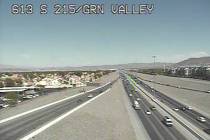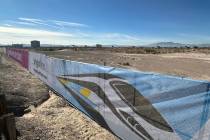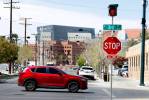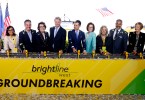Las Vegas ramping up approach to driverless vehicle technology
Las Vegas will be one of the first cities in the United States to roll out the technology that will accommodate self-driving vehicles, a futurist and transportation expert predicted Monday.
Fully autonomous vehicles will be sold to the general public in about five years and offering the majority of trips for passengers by 2026, said Paul Godsmark, chief technology officer and co-founder of the Canadian Automated Vehicles Center of Excellence.
“This technology is coming like a freight train,” Godsmark told about 50 people gathered for a workshop sponsored by the Regional Transportation Commission of Southern Nevada.
Las Vegas is among only 6 percent of cities in the United States that are including autonomous technology in their regional transportation plans, Godsmark said.
Planners are taking a closer look at moving away from concrete and pavement for roads, and moving toward the installation of wireless sensors that would allow autonomous vehicles to safely navigate traffic in Clark County, RTC General Manager Tina Quigley said.
“There’s this sense of urgency that comes with really wanting to get up to speed and prepare for these changes,” Quigley said. “The more aggressively we can reduce the need for roadway capacity enhancement, I think we can see an overall relief in the cost of living.”
The technology is already being tested here in Southern Nevada.
By early December, Audi will test a program that allows smart cars and traffic signals to “talk” to each other, Quigley said. The signals will relay information about the length of time for red lights, and how fast a vehicle must travel — within reason — to catch the next green light.
Earlier this year, the Las Vegas City Council designated the downtown area as an “innovation district” as a way to lure high-tech companies to test autonomous vehicles and other programs that promote safety and efficiency.
To the south, a self-driving minibus known as Olli is being demonstrated at UNLV, under a deal announced in June by the Governor’s Office of Economic Development and Local Motors, a Phoenix company known for manufacturing 3-D printed cars and buses.
The $299,000 vehicle carries up to eight passengers and is equipped with more than 30 sensors that guide the bus up to 32.4 miles with a single electric charge. The state’s deal with Local Motors marks the first pilot project for the Nevada Center for Advanced Mobility, an initiative introduced earlier this year by Gov. Brian Sandoval to promote the electric and driverless vehicle industry.
Steve Hill, director of the Governor’s Office of Economic Development, said that attracting driverless auto companies would help diversify Nevada’s economy.
“I don’t think much of this is hype,” Hill said. “This is an opportunity for our citizens in Nevada, for our visitors and for business here to really take advantage of these changes and utilize those changes to move Nevada forward.”
Contact Art Marroquin at amarroquin@reviewjournal.com or 702-383-0336. Find @AMarroquin_LV on Twitter.









